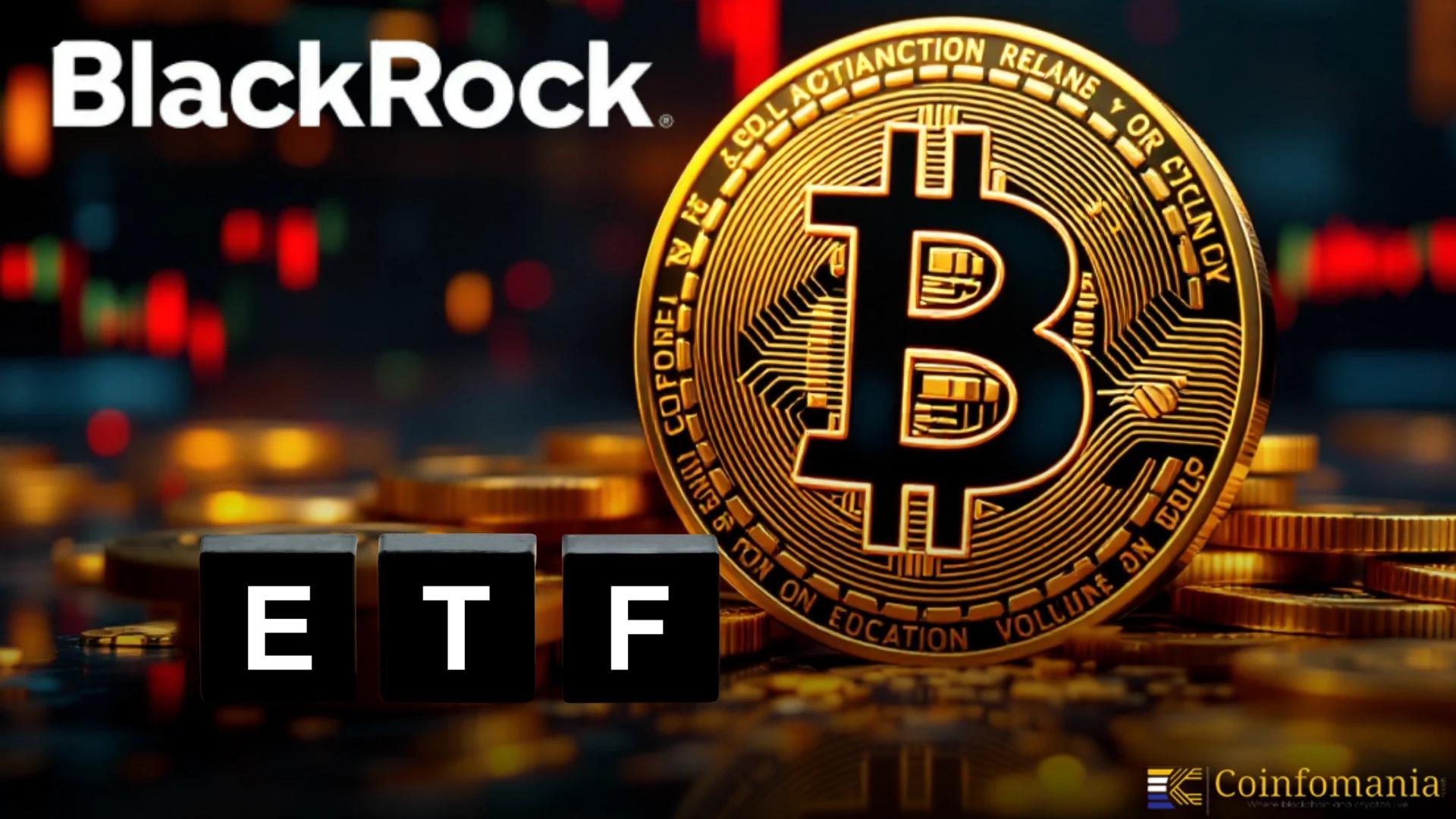BlackRock Expects “Tremendous” Growth for Its Bitcoin ETF
BlackRock forecasts “tremendous” growth for its Bitcoin ETF on CNBC, signaling a major wave of institutional capital into digital assets.

Quick Take
Summary is AI generated, newsroom reviewed.
BlackRock expects “tremendous” growth for its Bitcoin ETF, IBIT, as institutional demand accelerates.
IBIT manages nearly $100 billion in assets within less than two years of launch.
Institutional investors are shifting funds from traditional ETFs to Bitcoin-based ones.
SEC’s approval of Bitcoin ETFs in 2024 legitimized crypto for mainstream finance.
BlackRock’s bullish outlook signals confidence that trillions could flow into Bitcoin.
JUST IN: $13 TRILLION BLACKROCK JUST TOLD CNBC THAT THEY EXPECT "TREMENDOUS" GROWTH FOR THEIR #BITCOIN ETF
— The Bitcoin Historian (@pete_rizzo_) October 16, 2025
TRILLIONS ABOUT TO FLOW INTO BTC 🚀 pic.twitter.com/zwuIVgBXYL
According to BlackRock, the largest asset manager in the world managing more than 13 trillion, the growth in its Bitcoin ETF is expected to go off the scale. In a segment of CNBC, a representative of BlackRock stated that the company believes that inflows into its iShares Bitcoin Trust (IBIT) will be tremendous. It is one of the most vocal public expressions of an approval of Bitcoin by a big Wall Street entity. The enthusiasm of the company indicates that more investors believe in the long-term potential of Bitcoin. Analysts consider this move has the potential to bring trillions of institutional dollars to Bitcoin and the crypto market overall.
Bitcoin ETFs Go Mainstream
The discussion in CNBC focused on the booming growth of ETFs of digital assets. These exchange traded funds provide an investor with a controlled exposure to cryptocurrencies such as the Bitcoin without necessarily having to own them. The iShares Bitcoin Trust (IBIT) of BlackRock, which was approved by the U.S. Securities and Exchange Commission (SEC) in January 2024, became among the fastest-growing ETFs in the history of finance. It has handled close to 100 billion dollars in assets and been making an approximate of 245 million dollars in yearly fees (within 21 months). Such performance outdoes legacy ETFs such as iShares MSCI EAFE and iShares Russell 1000 Growth in their asset and fee revenue.
Markets being Reshaped by Institutions
The optimistic position of BlackRock indicates the increased involvement of institutional investors in the crypto industry. Bitcoin exposure in regulated funds has steadily grown with pension funds, hedge funds and wealth managers adding Bitcoin exposure since the launch of Bitcoin ETFs by SEC. According to the analysts, this has caused a diversion of capital outflows associated with traditional equity ETFs like the SPDR S&P 500 towards digital assets. The broadcast CNBC data revealed that the S&P 500 ETF outflow amounted to billions this year, and billions of dollars were inflows to Bitcoin ETFs. This has indicated a wider switch of institutional portfolios as online assets become more valid.
Force of Control
The crypto industry in 2024 had reached a milestone with the SEC approving spot Bitcoin ETFs. Regulatory uncertainty kept several institutions off direct crypto investments many years ago. Firms such as BlackRock, Fidelity, and Invesco have now developed regulated Bitcoin investment products, which has removed the barrier between traditional finance and digital assets. The reputation of BlackRock in compliance and strong governance made its Bitcoin ETF very attractive to conservative investors. This openness, the safety of this fund stored in the Coinbase, and its daily liquidity have bolstered its reputation to institutions pursuing a regulated exposure to crypto.
Market Influence of BlackRock
When BlackRock gets into Bitcoin, it is not merely a move to expand its business but a message to other financial players of the world. The entry of the largest asset manager in the world into the Bitcoin market proves the legitimacy of crypto as an asset category. The optimistic outlook of the company has already given investors a positive mood and can possibly elevate the prices of Bitcoin further.It also has good performance and this has compelled other competitors such as the Fidelity Wise Origin Bitcoin Fund (FBTC) and the Ark Invest ARKB to upgrade their services.
The institutional adoption is transforming investor perception about Bitcoin. Prior to ETFs, bitcoin ownership used to belong to retail traders and crypto-native investors. ETFs are currently providing a convenient entry point to established investors such as banks, corporations, and retirement funds. The fact that BlackRock projects immense growth is indicative of the fact that the Bitcoin position will continue to increase as part of diversified portfolios. Market strategists would indicate that a modest institutional capital inflow of about 12 percent of the global assets under management would infuse trillions of dollars into Bitcoin. This may be very influential on liquidity, volatility and the price stability in the long term.
Financial Markets
The increased need of Bitcoin ETFs may transform the dynamics of the world market. The presence of stronger institutions can fix the price of Bitcoin and eliminate severe volatility. In the meantime, the classic markets may undergo changes as investors no longer invest in stocks and bonds but on digital assets. The forecast provided by BlackRock is consistent with the general trends that indicate the arrival of blockchain-based investment as an essential element of the contemporary financial portfolio. The competition in the crypto ETF is increasing, with other asset managers (such as Invesco and Galaxy) introducing similar products.
In case projected capital flows are realized, the market capitalization of Bitcoin will hit new highs and it may surpass a value of over 3 trillion by the year 2026. An institutional demand boom can also affect the discourse of monetary policy as governments and central banks reconsider the place of digital currencies in international financial markets. The further growth of BlackRock in crypto proves that large organizations do not consider Bitcoin to be a speculative asset anymore, it is becoming a regular financial instrument. The expanding ETF market is preconditioning the next wave of innovation, such as possible Ethereum and multi-asset crypto ETF based on it.
References
Follow us on Google News
Get the latest crypto insights and updates.


